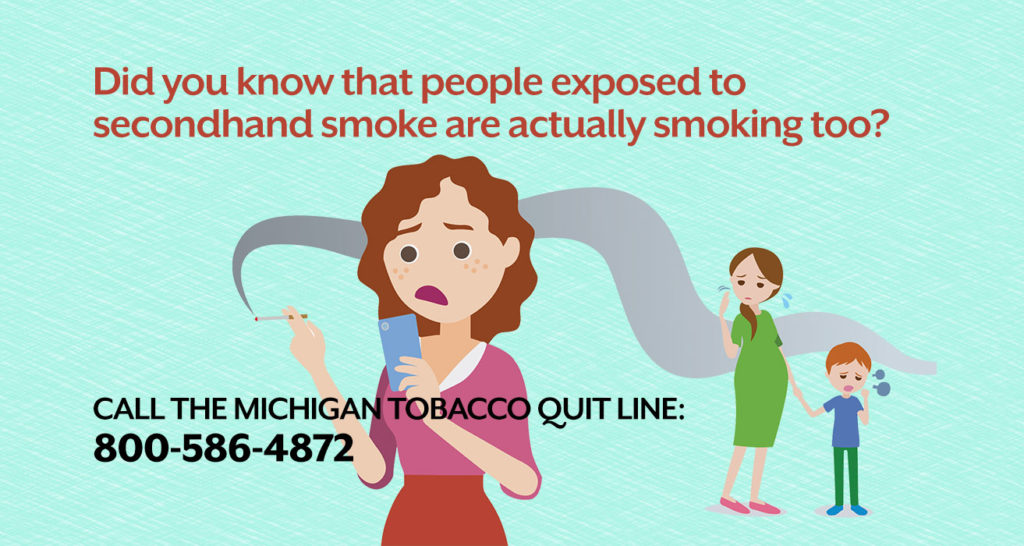
When nonsmokers are exposed to secondhand smoke, it is called involuntary smoking or passive smoking. Nonsmokers exposed to secondhand smoke absorb nicotine and other compounds just as smokers do. The greater the exposure to secondhand smoke, the greater the level of these harmful compounds in your body.
The 2006 U.S. Surgeon General’s Report, “The Health Consequences of Involuntary Exposure to Secondhand Smoke,” has concluded that there is no safe level of exposure to secondhand smoke and, on average, children are exposed to more secondhand smoke than adults. Children are significantly affected by secondhand smoke. Children’s bodies are still developing, and exposure to the poisons in secondhand smoke puts them at risk of severe respiratory diseases and can hinder the growth of their lungs. Secondhand smoke is a known cause of low birth weight, Sudden Infant Death Syndrome (SIDS), asthma, bronchitis, pneumonia, middle ear infection, and other diseases.
Secondhand smoke can be harmful in many ways. In the United States alone, each year it is responsible for:
- An estimated 35,000 to 40,000 deaths from heart disease in people who are not current smokers.
- About 3,000 lung cancer deaths in nonsmoking adults.
- Other respiratory problems in nonsmokers, including coughing, phlegm, chest discomfort, and reduced lung function.
- 150,000 to 300,000 lower respiratory tract infections (such as pneumonia and bronchitis) in children younger than 18 months of age, which result in 7,500 to 15,000 hospitalizations.
- Increase in the number and severity of asthma attacks in about 200,000 to one million asthmatic children.
- Increases in the risk of sudden infant death syndrome (SIDS) and middle ear infections in young children.
- Low birth weight in babies whose mothers are exposed to Environmental Tobacco Smoke (ETS).
There is help if you want to quit. DHD#10 has numerous tobacco cessation recourse, check them all out here.
Quicklinks
Tobacco Cessation
Michigan Tobacco Quitline
CDC Tobacco Resources
